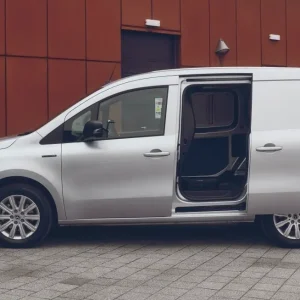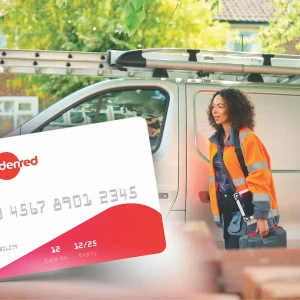The Freight Transport Association claims to have broken new ground by introducing a Van-Dependency Index to measure the importance of vans to different economic sectors in financial terms.
According to the index, which the group introduced to coincide with its annual Van Excellence Report, the postal and courier sector is the most reliant on vans. The level of van-dependency is calculated by the number of vans per £1m gross value of each sector – for example, the postal and courier sector has a Van Dependency Index of 28.7, with a fleet of 255,000 vans, while the construction trade is ranked at 15.9 vans per £1m value. Retail’s rating, however, is just 0.3 but the FTA calculates that each supermarket LCV delivers annual online grocery sales of almost £400,000.
Other sectors listed include civil engineering, with an index of 11.8 and telecoms, with an index of 2.8.
The FTA claims its launch of the Van-Dependency Index represents the first time the link between van usage and economic contribution has been made.
The group says its findings show that “just 10% of the vehicles on UK roads make possible a disproportionate amount of our national GDP and the quality of life which the UK population requires and enjoys”.
The link between LCV sales and the state of the economy can be seen by tracking registrations against GDP. When the recession hit hardest in 2009, for example, a 4.3% decline in GDP was reflected by a 35.6% drop in van sales, according to the SMMT. On the other hand, the 3% growth in GDP last year corresponded with a 19% surge in sales.
In a wide-ranging study of the light commercial market the FTA found half of the vans in the UK are operated by sole traders while the biggest single sector is the postage and parcel market.
There are currently 3.6 million vans in the UK, according to the FTA, with 318,000 off-road and 58,000 between keepers. More than 1.6 million are registered to companies, and 1.8 million to individuals.
The group launched the Van Excellence scheme in 2010 to enable van operators to demonstrate industry compliance and share good practice ideas in order to raise standards in the industry.
The scheme now has more than 100 company members, including Hertz, BT Fleet and ATS Euromaster.
It is focusing on extending its reach beyond the major fleets to attract smaller businesses and sole traders into the initiative, as it says they are less likely to demonstrate such high levels of corporate responsibility and compliance. This can be a problem because, as the FTA points out, most van drivers identify with their core trade, which could be painter/decorator or landscape gardener, for example, and not as “professional drivers” and therefore may not adhere to stringent safety procedures when it comes to their vehicle.
According to the FTA, professional fleet-management is generally only found in the largest van fleets. Without a statutory framework for management and without transport backgrounds or relationships, many businesses are not aware of their compliance responsibilities.
But the FTA is not calling for more regulation, which it claims would be ill-suited to the diverse range of operations in the market and the versatility they require, just greater enforcement of existing laws coupled with more professionalism and awareness of the risks associated with driving vans.
The Van Excellence scheme aims to rectify this lack of transport understanding by teaching decision makers, who may be highly aware of risk in another field, to recognise driving as a work-related risk too.
“Van Excellence has been embraced by the industry as a valuable initiative to enhance standards of van operator compliance and celebrate those who demonstrate excellence,” says Mark Cartwright, FTA’s head of vans.
But there is much work still to do, the FTA points out that last year 89% of LCVs the DVSA stopped were overloaded and adds that half of vans fail their MoT at the first time of asking – a statistic that is unlikely to improve when the first MoT moves to four years unless standards are raised.
“It is incumbent upon those running van fleets to protect the public safety and to fulfil their duty-of-care obligations to their employees,” says the FTA.
Van usage is dominated by small businesses and sole traders – Research has identified the top 200 UK van fleets operate just 9% of LCVs. Professional fleet management is a rarity so it is important that best practice filters down to the smaller players. The FTA says fleets can assist this process by insisting that their sub-contracted businesses also gain accreditation to Van Excellence.





